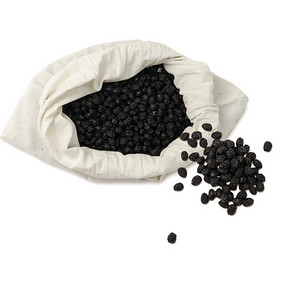Legendary History of Alishan Coffee
Follow the caf é (Wechat official account vdailycom) and found that Beautiful Cafe opened a small shop of its own.
Legendary History of Alishan Coffee
In the autumn of 2004, under the leadership of a group of Alishan Zou warriors, dozens of coffee trees were discovered in the primeval forest at an altitude of 1200 to 1900 meters, thus discovering a long-unknown historical story between coffee and the Alishan Zou people.
In 1624 (the fourth year of tomorrow), the Dutch landed in Anping in today's Tainan City and established the city of Ralanche (present-day Anping Castle) and Chijiaolou as the administrative center of Taiwan. The Dutch East India Company used this stronghold to do business with the aborigines in the west at that time, the aborigines of the Jiannan Plain and the present-day Alishan Zou. As a result of the ongoing trading cooperation, but also through the missionary actions of Dutch missionaries at that time, the Dutch had more frequent contacts with the Siraya and Zou tribes.
Romantic love planted the seeds of coffee life story.
A long time ago, there was an exotic romantic love story spread by the Zou nationality on the Jiannan prairie. As a result of frequent exchanges between the Dutch doing business in Taiwan and the Zou people, there were many romantic stories about each other. At that time, the Dutch businessmen were mainly men. In succession, the church set up by the Dutch was witnessed and blessed by the pastor. Such an exotic marriage makes the relationship between the Zou and the Dutch closer. As a result, many Dutch settled in Taiwan and brought and planted coffee beans in the Jiannan Plain, which is said to be the origin of coffee in Taiwan.
Zheng Chenggong defeated the Dutch in 1662, ending the 38-year Dutch rule. Most of the Dutch returned to the Netherlands, but some of the Dutch chose to stay with their wives and accept the protection of the Alishan Zou aborigines.
In the later period of success, a large number of Han Chinese were introduced to Taiwan for reclamation, but the living space of the Zou was squeezed, and the Zou had to gradually move from the flat to the mountainous areas. these remaining Dutch migrated with the Zou, and finally settled in the lalauya tribe of Alishan, so the Dutch became a member of the Alishan Zou. Up to now, Zou people who look like foreigners can be seen especially in Alishan Zou tribes, Leye tribes and some clans.

However, the coffee trees brought by the Dutch to Mount Ali were gradually abandoned in the process of continuous migration, and it was not until Gu Keng Coffee and Starbucks Coffee brought the popularity of coffee in the Taiwan market in recent years that coffee became a bitter and sweet magic bean. to be reborn on Alishan. The people believe that the coffee tree found in the secret land of the mountains is what the people called ruthless mafeel (Zou language) hundreds of years ago, and it is a rare historical witness for the people to find these coffee trees so far, and evoke the memories of the Alishan people hundreds of years ago.
The tip of the picky tongue has also succumbed to the Alishan Mazu Mafeel coffee on the world stage. in recent years, driven by the government's development of sightseeing agriculture and local industry, Alishan Zou aboriginal youth are willing to return to their hometown to operate and cultivate. Alishan coffee has been full of vitality again, coupled with the popularity of coffee, the demand for coffee at home and abroad is increasing year by year, more and more friends know how to taste coffee and love coffee, and they are more picky about the taste. Therefore, high-quality coffee can also satisfy the taste buds of the Chinese people, resulting in a shortage of coffee in Taiwan.
At present, the varieties of Alishan coffee are Arabica coffee, this kind of coffee grows in a harsh environment, its taste is less bitter and astringent, the flavor is mellow, and it will emit different fragrance and taste according to the place where it is planted. It is still a coffee variety with great personality, which is one of the reasons why it has become a best-selling product on the market in just a few years. However, the most special thing is that Alishan Coffee touches the Zou people's 100-year cultural history and romantic exotic love story. Tasting Alishan Coffee makes people seem to travel through the time and space corridor into the present and past lives of the coffee world. When you come to Alishan, you must taste Alishan mafeel (delicious) Taiwanese coffee.
At present, there are three categories of instant coffee (no flavor), coffee beans (Taiwan coffee), and follicular coffee (Taiwan coffee). Compared with the general imported coffee beans, the taste is more mellow, and it is not sour, astringent, and bitter, so it is worth carefully tasting the good coffee.
Alishan Mazu Taiwan coffee is most suitable for cooking in siphon coffee pots and is very suitable for individual consumption. No sugar, no cream is also very smooth.
In addition, you can also adjust fancy coffee, but it is recommended that the amount of coffee is slightly used at this time, so that you can taste its sweet and thick taste.
And roasted coffee beans, it is easy to come into contact with the air to make the smell worse, at this time the ideal coat packaging is very important. Alishan Mazu Taiwan coffee raw beans use aluminum foil bags with one-way breathable valves, which can discharge the carbon dioxide produced during the ripening process of coffee beans, and the air outside the bag cannot enter. The opaque aluminum foil bag on the package can also prevent moisture from entering and keep fresh coffee beans breathing, but it will not affect the quality and flavor of coffee beans because of exposure to air and moisture.
The method of punching and adjusting
Hot drink: add the coffee to 150cc hot water and stir slightly to enjoy the aromatic coffee.
Cold drink: mix coffee with hot water, add appropriate amount of ice water and ice cubes, and stir slightly.
Important Notice :
前街咖啡 FrontStreet Coffee has moved to new addredd:
FrontStreet Coffee Address: 315,Donghua East Road,GuangZhou
Tel:020 38364473
- Prev

An introduction to Maji Coffee from Baodao
Following Cafe (official account of Wechat, vdailycom) found that the Dutch brought Alishan coffee trees to become obsolete in the process of continuous migration, and it was only when Starbucks Coffee brought the coffee craze in the Taiwan market that coffee, a bitter and sweet magic bean, was reborn on Alishan. The people believe that this was found in the secret land of the mountains.
- Next

High-quality boutique coffee from Taiwan coffee, Mazu coffee
Follow the caf é (official Wechat account vdailycom) and found that Alishan Coffee, a small shop of its own, is grown in Arabica Coffee. This kind of coffee grows in a harsh environment. Taiwan is located in the subtropics, with high temperatures all the year round, and coffee trees like shade. If coffee trees are planted alone, they may be killed by strong sunlight, and the Ali Mountains are heavily forested.
Related
- Detailed explanation of Jadeite planting Land in Panamanian Jadeite Manor introduction to the grading system of Jadeite competitive bidding, Red bid, Green bid and Rose Summer
- Story of Coffee planting in Brenka region of Costa Rica Stonehenge Manor anaerobic heavy honey treatment of flavor mouth
- What's on the barrel of Blue Mountain Coffee beans?
- Can American coffee also pull flowers? How to use hot American style to pull out a good-looking pattern?
- Can you make a cold extract with coffee beans? What is the right proportion for cold-extracted coffee formula?
- Indonesian PWN Gold Mandrine Coffee Origin Features Flavor How to Chong? Mandolin coffee is American.
- A brief introduction to the flavor characteristics of Brazilian yellow bourbon coffee beans
- What is the effect of different water quality on the flavor of cold-extracted coffee? What kind of water is best for brewing coffee?
- Why do you think of Rose Summer whenever you mention Panamanian coffee?
- Introduction to the characteristics of authentic blue mountain coffee bean producing areas? What is the CIB Coffee Authority in Jamaica?

